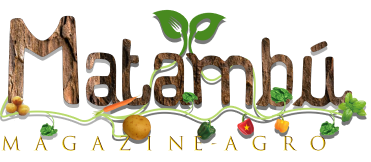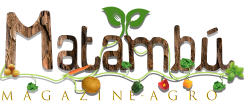[ad_1]
Tomatoes from the Twiga Fresh farm going to market.
Established in 2014, Kenya-based Twiga Foods connects farmers and small shopkeepers through a cell app. If a vendor is out of inventory of bananas, for instance, they place an order on the Twiga app and the corporate delivers inside 24 hours, sourcing from its warehouse or instantly from a smallholder farmer.
Twiga has historically been seen as largely a know-how firm, utilizing software program to streamline Kenya’s meals provide chain. However, it lately introduced a US$10 million funding into its personal farming operations by means of new subsidiary Twiga Fresh. Jeanette Clark speaks to co-founder and CEO Peter Njonjo about why the corporate determined to enterprise into farming.
A logical subsequent part
When Twiga began, the corporate purchased all its contemporary produce from smallholder farmers. Some of the farmers might present high-quality produce whereas others struggled, making high quality management difficult.
“We realised we needed to look at ways of addressing this inconsistency,” says Njonjo.
Some worth chains have been performing higher than others. Bananas, for instance, all the time did properly because the farmers might produce these with out high quality or productiveness points. Products like tomatoes have been a special story. Farmers have been combating low ranges of productiveness and skilled main post-harvest losses.
“We tried solving these problems by sourcing from mid-sized operations but it remained a challenge, so we decided to invest in our own farming operations.”
Although Kenya has a comparatively developed retail sector, Njonjo says there are nonetheless inefficiencies in meals worth chains aimed on the home market.
He explains that the home major agriculture sector has been starved of funding, innovation and productiveness beneficial properties for a very long time. As a outcome, domestically grown produce is usually dearer than the obtainable imports. “It has left us with a scenario where the bulk of garlic in Kenya is now coming from China.”
Twiga realised it already had a deal with on the demand facet – delivering produce to small retailers – and will develop additional if it might guarantee constant provide. It determined to concentrate on crops the place scale was required: onions, tomatoes and watermelons.
Harvesting of water melons on the Twiga Fresh farm.
Finding the suitable farming mannequin
Twiga is rising crops on 650 hectares of land, leased from large-scale farmers. Partnering with present farms made monetary sense in response to Njonjo. Finding obtainable land on farms with the fundamental infrastructure in place and ample water provide meant the corporate might use its funding particularly for the bespoke changes required for the cultivation of its chosen crops.
“We also had to address the fact that the capability to manage farms at this scale does not exist locally. For example, we tried to hire an agronomist who had experience in farming onions on a larger scale than 100 hectares and could not find someone outside of South Africa,” he explains.
The firm needed to construct a worldwide staff of agronomy consultants – from South Africa, the US and the UK – to attain increased productiveness ranges and set up a system of traceability, all in a short while.
Benefits to the retailer and finish client
The transfer into major agriculture has already resulted in a discount in costs for produce purchased through Twiga Foods. “We can sell at a much lower cost and that saving is passed on to the consumer. We want to start a trend to attract more capital for commercial farming aimed at domestic supply.”
It hopes to have an effect by formalising the availability chain and lately commissioned a 20,000 m2 distribution centre with trendy automation, from the place its vehicles cowl near 12,000 km every single day supplying produce to casual retailers.
“This allows us to plan better and cut out more inefficiencies, again lowering prices.”
Working capital is one other problem confronted by casual retailers. They usually solely procure what they will afford on the time. “There are frequent out-of-stock challenges at retailers,” explains Njonjo. As a outcome, Twiga launched a monetary companies enterprise to supply the required finance so retailers should buy what their clients want once they want it.
Improving traceability
Working with casual smallholder farmers meant Twiga didn’t all the time have visibility of the kind of pesticides or fertilisers getting used of their farming practices. “This created concerns about food safety. If you are aggregating from various informal suppliers, you become the face of that food safety,” provides Njonjo. Being capable of present traceability on the produce it farms through Twiga Fresh brings peace of thoughts for the tip client and protects the model from any potential fame injury.
Focus crops
In Kenya, Twiga Fresh will concentrate on tomatoes, onions and watermelon. As it expands into different markets, the corporate will consider the worth chains that require industrial farming at scale.
“In West Africa, peppers could be a focus crop. We will be very situational when we look at our farming operations but see potential in potatoes as well. For everything else, we will continue sourcing from smallholder farmers as much as we can,” says Njonjo.
[ad_2]










